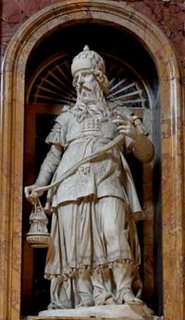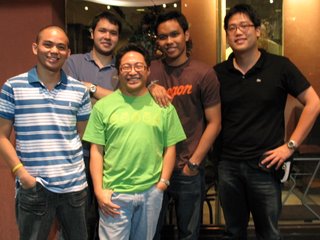
29 January 2007: Monday of the 4th Week in Ordinary Time
Hebrews 11, 32-40 Heroes
For many of us who have seen many glorious years but still wish to inspire the young to be heroic might find the first reading from the letter to the Hebrews inspiring. The writer to the Hebrews lets his mind remember many heroes from Scripture.
The story of Gideon is in Judges 6 & 7. With only 300 men, Gideon won victory from the Ammonites who terrorized
If the writer of the letter to the Hebrews would have seen our days, perhaps he would be very happy that the list of heroes he gave grew. Our Christian history is not depleted by heroes, saints and martyrs who faced immense odds for the sake of God. And in UP, there are still people who have stories such as these; and many of them unnamed, lived heroic lives. Many of you speak of the miracle in the building of this very church --- stories of brave students who have given up a meal, a snack, a coke, a debut, a party and donated their money for this church.
The list of heroic men and women are witnesses to the immense power of God. God can turn our weakness and limitations into victory. We may be as young as Timothy and Jeremiah; or as old as Abraham; or has succumbed to sin and digressed like Samson, but continues to overturn our weakness and transform it to victory. We might be overpowered by numbers, but heroes like Gideon, Barak, Samson, David, Samuel, our saints and martyrs, our national heroes, our present Bayaning Pilipino, and the many students of UP tell us not to be discouraged.
I guess this is what history is all about, this is how history should be taught: that the stories from the past should inspire the younger generation with a new courage and a sense of responsibility by remembering the stories of old. Now I do not wonder why my parents incessantly talk about their love story at table, or about the stories of our grandparents and our families. These stories contributed to our memory. It is in these treasured stories that we began to appreciate our lineage, gain self-knowledge, and thus to inspire us to live according to the values held dear by the family. But more importantly, these stories that make up our memory as a family, as a people, as members in the Christian faith become our identity.
When we lose heart, when we are frustrated, when we are disappointed, when we are hopeless or helpless by our situation, the first reading then tells all of us that we should not be discouraged. We should take heart. Because what God did in the past, He can still do the same thing for us today and in the future.












